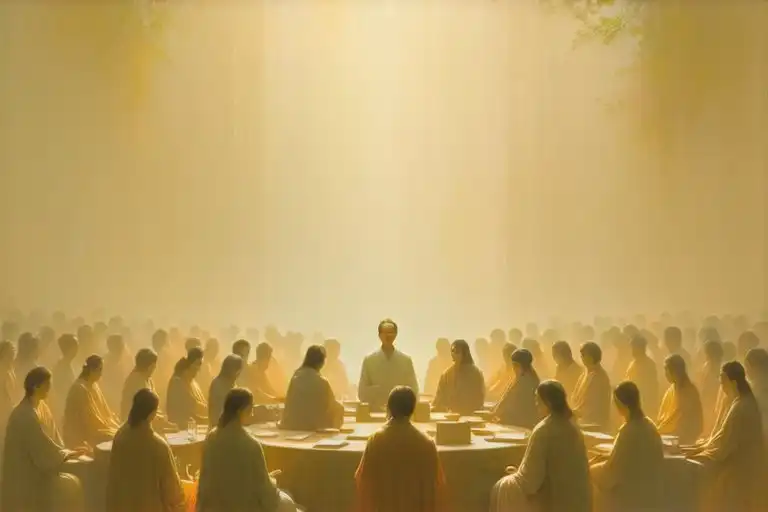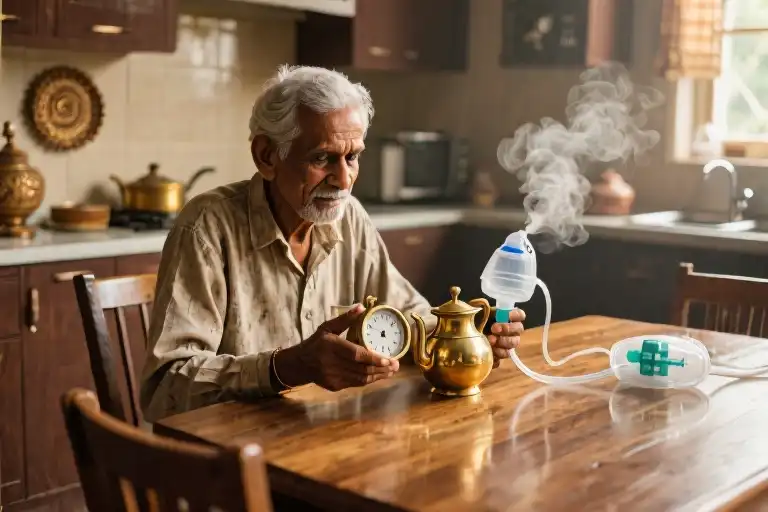I Thought I Was Ready to Die (I Was Wrong)
Last Tuesday, I caught myself rehearsing my own eulogy while stuck in traffic.
I lived well. Worked hard. Loved deeply. If my time came tomorrow, I’d be okay with that.
But would I? Or am I just telling myself a comfortable lie?
When I visited my uncle in hospice last month, his eyes—cloudy with morphine but suddenly clearer than they’d been in years—locked onto mine. “You know what’s funny about dying?” he whispered through cracked lips. “It makes you realize you’ve been looking at life through the wrong end of the telescope.”
What Actually Happens When You’re Told “It’s Terminal”
The journey from diagnosis to acceptance isn’t what most people imagine. First comes the tsunami of emotion—shock, denial, anger—that’s the part we all expect. But what emerges next is the surprising twist in this universal story.
“The strangest thing happened after I stopped fighting it,” Sarah told me, her stage IV cancer forcing a brutal honesty I rarely encounter. “All those things I thought mattered just… evaporated. Like morning fog burning off a lake.”
Terminal patients experience something the rest of us desperately need but can’t seem to find: a radical clarity about what actually matters.
The Three Unexpected Regrets of the Dying
When researchers interviewed 200+ hospice patients about their deepest regrets, the answers weren’t what most of us would predict. The big career move missed? The exotic vacation never taken? The romantic paths not followed?
Barely mentioned.
1. The Permission Regret
Mark, a former executive who once managed hundreds, now reduced to managing his pain medication schedule, couldn’t stop talking about butterflies.
“I never gave myself permission to just… notice things,” he said, watching one flutter outside his window. “Always too busy proving something. To whom? I can’t even remember now.”
What they wished they’d known: The daily moments of beauty aren’t distractions from your important life—they ARE your important life.
Try this today: Give yourself a ridiculous permission slip. Write it down: “I, _____, hereby grant myself permission to stare at clouds/dance badly in my kitchen/call an old friend for no reason.”
2. The Connection Illusion
“I thought staying busy meant I was connected,” explained Elena, 62, her bedroom walls covered with family photos she could no longer identify through her failing vision. “But I was just… adjacent to people. Not really with them.”
The data is striking: 78% of terminal patients reported regretting time spent on social media versus face-to-face conversations. The digital world promised connection but delivered mostly its shallow cousin: visibility.
What they wished they’d known: Being physically present but mentally elsewhere is a form of absence that accumulates like debt.
Try this today: The next time someone speaks to you, notice the color of their eyes. This tiny act of attention changes everything.
3. The Tomorrow Fallacy
“I kept a mental list called ‘When Things Settle Down,'” laughed Robert, 71, the irony not lost on either of us as his nurse adjusted his morphine drip. “Turns out, things don’t settle down. Ever. That’s not how life works.”
This isn’t about YOLO-style impulsiveness. It’s about recognizing the quiet deception in our daily postponements.
What they wished they’d known: There is no perfect future moment waiting for you to finally start living authentically.
Try this today: Identify one joy you’ve been postponing “until the right time” and schedule it. Literally put it on your calendar. Next week. Not someday.
Why We Resist This Wisdom (It’s Not Your Fault)
Our brains aren’t wired for mortality awareness—quite the opposite. We’re built with psychological defense mechanisms that shield us from death anxiety. This isn’t weakness; it’s evolutionary design.
But here’s where it gets interesting.
Research shows that controlled exposure to mortality awareness—what psychologists call “death reflection” rather than “death anxiety”—actually increases happiness, gratitude, and generosity.
The hospice nurses I interviewed called it “the paradox of dying”:
“People who confront death most directly often live most fully,” explained Linda, who’s held the hands of hundreds crossing that final threshold. “The rest of us stay busy to avoid thinking about it, but end up missing the point entirely.”
Your 7-Day End-of-Life Wisdom Challenge
Want to apply this perspective without the terminal diagnosis? Here’s your week-long experiment in living with hospice-inspired clarity:
Monday: Write down three “permission slips” for joys you’ve been denying yourself.
Tuesday: Call someone you love and ask about their earliest happy memory. Just listen.
Wednesday: Notice five beautiful ordinary things you’d miss if you couldn’t see tomorrow.
Thursday: Forgive someone who doesn’t deserve it. (Hint: start with yourself.)
Friday: Delete one “someday” from your bucket list by scheduling it now.
Saturday: Spend 10 minutes watching how light moves through your home.
Sunday: Write a six-word memoir of your week. What tiny shift do you notice?
The Last Word
“We all hit the ground in the end,” as Montazona sings. But between now and that inevitable moment stretches the only life you’ll ever have.
The most heartbreaking thing I heard from almost every hospice patient wasn’t regret for what they’d done wrong—it was sadness that they’d discovered how to live right only at the very end.
What if you didn’t wait?
What if you lived today like you’d just been reminded how precious it all is?
P.S. Next time you’re washing dishes, notice how the light catches in the soap bubbles. According to those who know they’re running out of time, that ordinary moment contains everything that actually matters.




